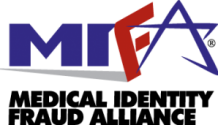New Study Shows Investments Being Made in Healthcare to Combat Medical Identity Fraud
Medical Identity Fraud Alliance Members Making Inroads to Detect, Prevent and Mitigate Identity Fraud
Washington, DC, September 22, 2015 – The Medical Identity Fraud Alliance (MIFA) released a study to better understand what investments are being made in the healthcare industry to detect, prevent and mitigate medical identity theft and fraud. The 2015 Healthcare Industry Investments to Fight Medical Identity Fraud surveyed MIFA members and industry contacts in various areas of investments, including strategic priorities, personnel and IT spending, budget allocations, investments in workforce training and other business areas that impact the privacy and security of Protected Health Information (PHI).
The study shows the healthcare industry is making significant technology investments but also places a high priority on employing the right personnel expertise. 72 percent of respondents placed a premium on personnel talent. Nearly half of the respondents are prioritizing resources for fraud detection systems over prevention and mitigation investments.
“Members of MIFA are making significant investments in protecting PHI to reduce the risk of medical identity theft and medical fraud. I wish other organizations would do the same,” states Rick Kam, president of ID Experts, a MIFA founding member. Nearly half of the respondents indicated they are experiencing an upward trend for overall financial investments. In addition to personnel and IT resource allocations, nearly half of respondents are also placing training, education and awareness programs either first or second as a strategic priority.
The study indicates many companies are taking a broad enterprise-wide approach to how they prioritize and invest in resources to detect, prevent and mitigate medical identity fraud, which is an approach MIFA endorses.
“With this study, MIFA has taken a major step in helping us appreciate the extent and type of investments dedicated to the protection of sensitive healthcare information for people throughout the United States,” states Don Rebovich, Center for Identity Management and Information Protection at Utica College, a MIFA strategic partner. “Study findings are encouraging in that they demonstrate a pattern of increasing investments in strategies to control medical identity theft and fraud. Further, the study enlightens us on areas where we will need to be more vigilant in the future; areas like enhancing prevention methods. In its entirety, Healthcare Industry Investments to Fight Medical Identity Fraud makes a valuable contribution to understanding how we can best contain medical identity fraud.”
The paper is available here.
About the Medical Identity Fraud Alliance (MIFA)
MIFA is an industry trade association of healthcare providers, payers and service provider stakeholders, working to help its members better protect consumers from medical identity theft and fraud, through research, public-private collaboration and information sharing. Members provide leadership to: mobilize the healthcare ecosystem; cooperate to leverage collective intellectual capita; research to adequately understand the problem and guide solution building; and educate consumers, industry and government on medical identity theft and fraud issues. For more information visit http://medidfraud.org/.
About the Study
The study included 98 respondents from throughout the healthcare industry, including both MIFA members and other companies. Not all questions were answered by all respondents. The report should not be construed as industry standards or best practices due to its limited sample size in relation to the healthcare industry as a whole.
Media Contact:
Ann Patterson
Medical Identity Fraud Alliance
703-407-0958
[email protected]
